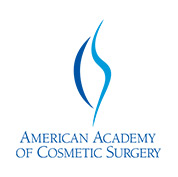Why Fellowship Training is Important for a Cosmetic Surgeon
 Dr. Farzaneh believes that continuing education in the field of cosmetic surgery is vital for patient care. As keeping up with new developments and techniques is integral component of quality health care, Dr. Farzaneh routinely attends medical conferences and courses to stay abreast of the global advances in cosmetic surgery.
Dr. Farzaneh believes that continuing education in the field of cosmetic surgery is vital for patient care. As keeping up with new developments and techniques is integral component of quality health care, Dr. Farzaneh routinely attends medical conferences and courses to stay abreast of the global advances in cosmetic surgery.
In addition to his medical training, Dr. Farzaneh also completed an in-depth Fellowship Program provided by The American Academy of Cosmetic Surgery.
Dr. Farzaneh completed his residency in general and maxillofacial surgery at the University of Maryland’s Hospital and the world-renowned R. Adams Cowley Shock Trauma Center.
But he didn’t stop there. Dr Farzaneh also completed an additional two-year fellowship in facial, body and breast cosmetic surgery at the Facial Plastic and Cosmetic Surgery Center in Texas under the directorship of Dr. Howard Tobin, former president of the American Academy of Cosmetic Surgery. This fellowship is certified and accredited by The American Academy of Cosmetic Surgery and The American Board of Cosmetic Surgery.
A Cosmetic Surgery Fellowship is a full time concentrated training program solely dedicated to elective cosmetic (aesthetic) procedures. Not all cosmetic surgeons complete this fellowship, which includes spending extra years in an approved certified fellowship after finishing a surgical residency and an internship.
There are many different types of fellowships available in the field of plastic, aesthetic, and reconstructive surgery. These include burn, craniofacial, hand and microvascular. It is also important for the fellowship to be accredited by an established governing body to ensure adequate training. The uniqueness of a Cosmetic Surgery Fellowship is that it exclusively focuses in the specialty of aesthetic and cosmetic surgery.
Dr. Farzaneh spent two years full time participating in the Cosmetic Surgery Fellowship. He participated in thousands of invasive and non-invasive cosmetic procedures.
“The experience was priceless.
The fellowship training program is certified and accredited by the American Board of Cosmetic Surgery and the American Academy of Cosmetic Surgery. The American Board of Cosmetic Surgery is the only certifying board that exclusively tests surgeons’ knowledge and experience in cosmetic surgery.”
When considering the difference between regular residency and and an additional Cosmetic Surgery Fellowship, one should consider that minimum cosmetic surgery requirement established by the Residency Review Committee of the Accreditation Council for Graduate Medical Education includes only ten breast augmentations, seven facelifts, eight blepharoplasties, six rhinoplasties, five abdominoplasties, ten liposuctions, and nine other “cosmetic surgery procedures”.
Dr Farzaneh believes that surgeons pursuing a career in cosmetic surgery need focused post-residency fellowship program to gain more experience prior to entering private practice, thereby better serving their patients.
Fellowship Training matters as it assures that your cosmetic surgeon is completely up to date on all current procedures and techniques. It is just one more measure to judge trust between you and your cosmetic surgeon.






